#lgbtq history
Text
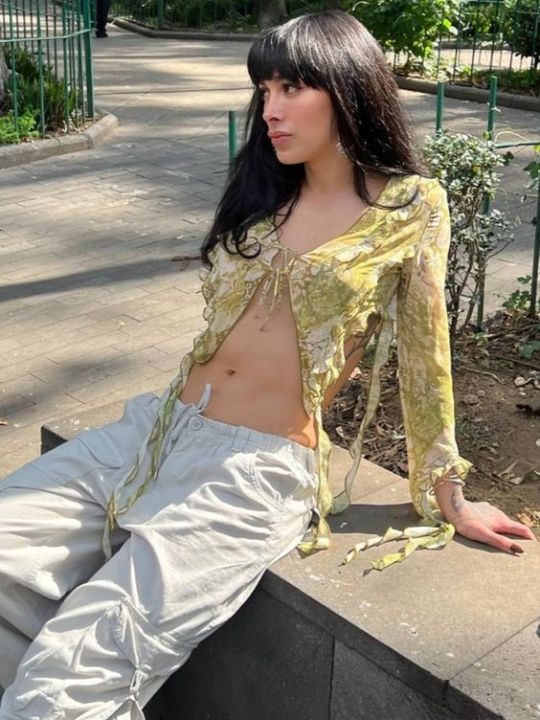
Victoria Volkova: A Beautiful Transgender Women Street-wear Cargo Pants.
#trans#trans community#transgirl#queer#lgbtlove#transgender#transgenderwoman#trans pride#lgbtqia#transfem#lgbt#lgbtq#lgbt pride#lgbtq community#lgbtq artist#lgbtq history#lgbtq positivity#lgbtqia+#lgbtqplus#lgbt nsft#lgbtq people#queer community#pride#trans lesbian#trans joy#beautiful trans woman#cute trans#nsft trans#mtf trans#trans are beautiful
74 notes
·
View notes
Text
I'm doing a project for school about minorities, and of course I'm doing queer people
It would be really helpful if any of you could give me any personal experiences on how you've experienced discrimination, prejudice and just overall experiences you've had just for being any flavor of queer
I'd also appreciate any statistics for anything, like statistics for violence towards queer people, statistics for assault towards queer people, statistics for homelessness towards queer people, etc.
I ALSO need some positive things queer people have contributed to society (specifically in the U.S.), so far all I have is Marsha Johnson and how she started the Stonewall riot that then led to queer people gaining rights
Honestly, just anything relating to how queer people are marginalized would be very helpful and very much appreciated
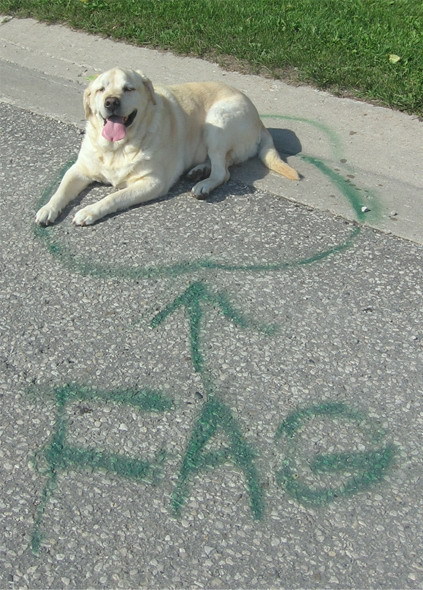
23 notes
·
View notes
Text
Gender Nonconforming Jesus: A look at art history. CW: religion, transphobia, artistic nudity, depictions of open wounds (Long post)


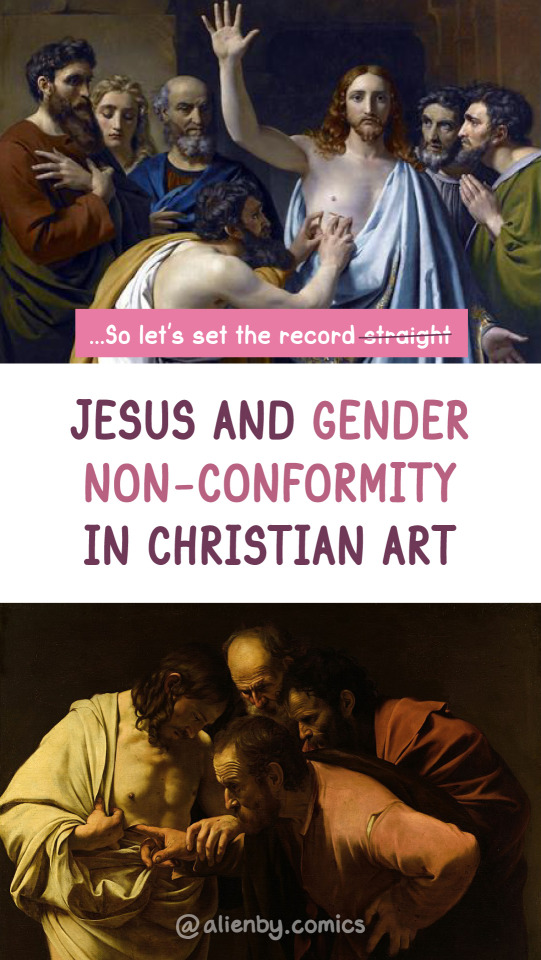

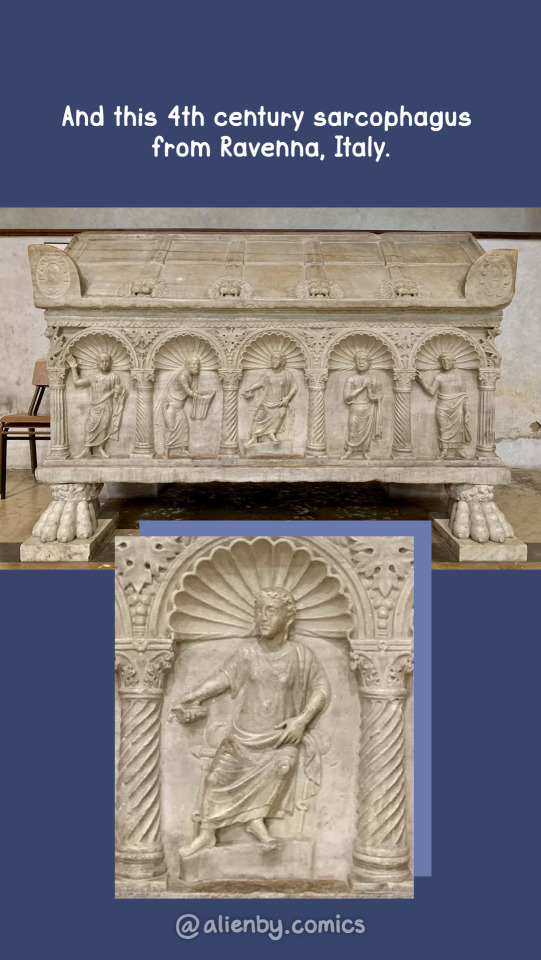


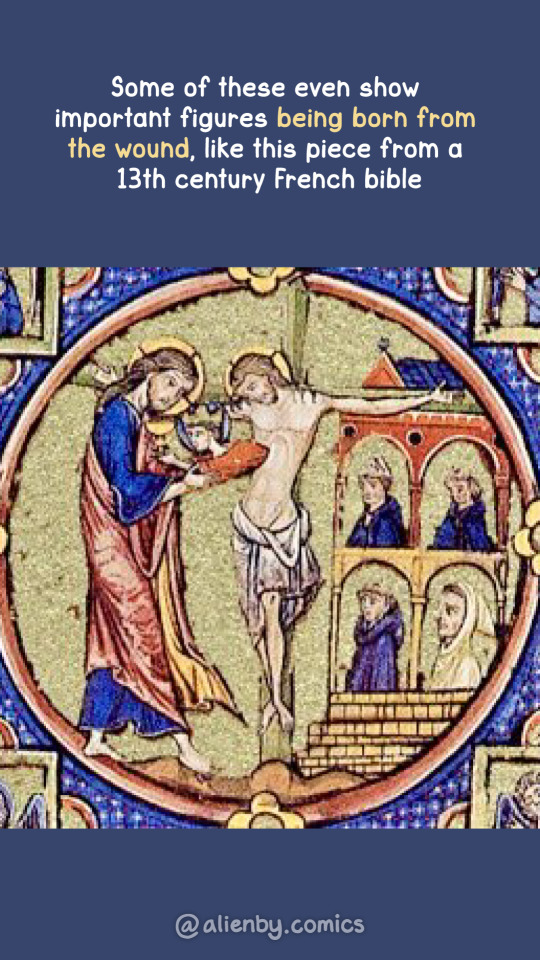


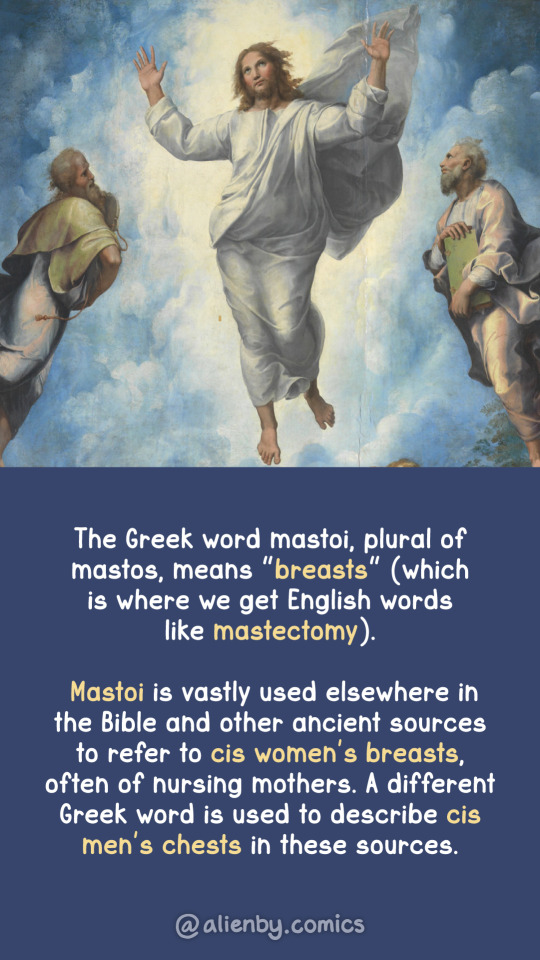
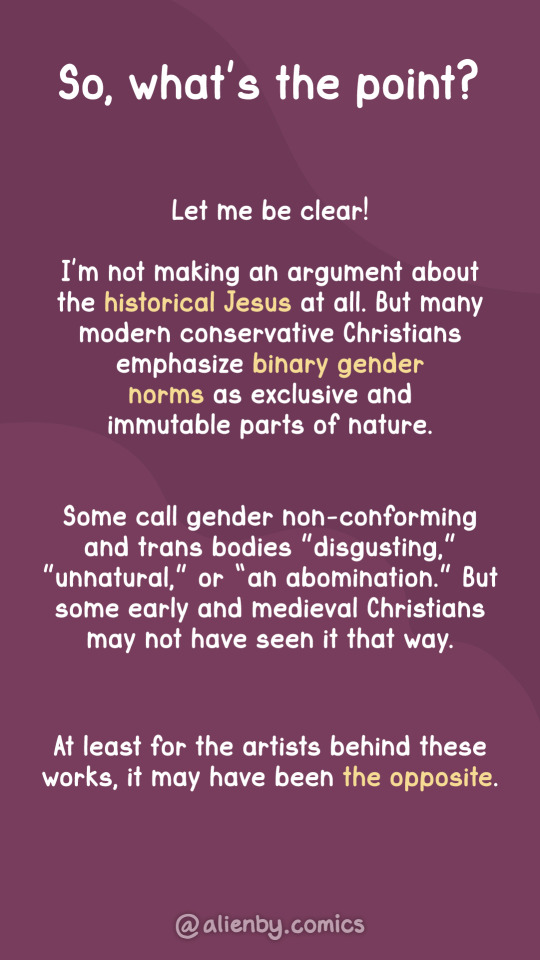
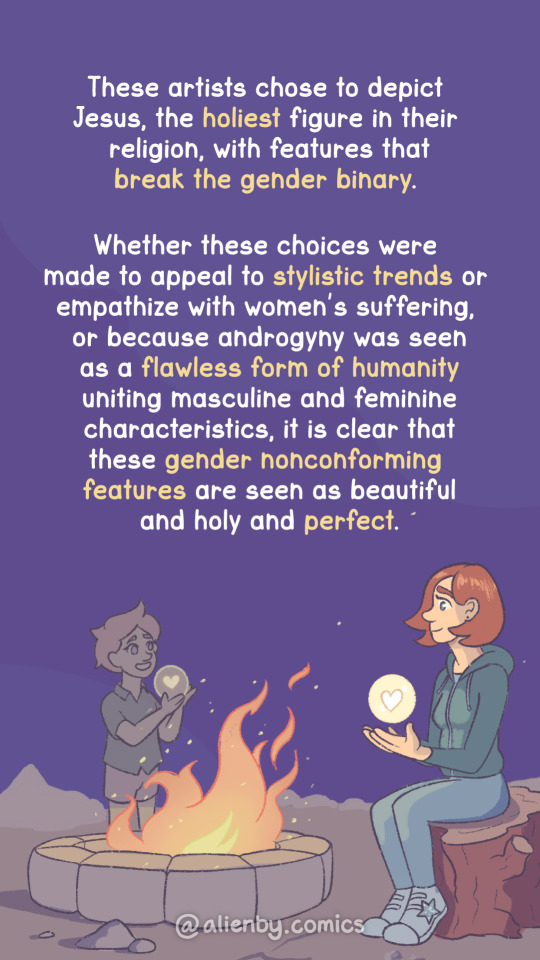

#long post#trans woman#trans man#transgender#cw transphobes#cw wounds#cw religion#exvangelical#ex fundamentalist#ex religious#art history#trans artist#transfem#trans history#lgbtq history#gender nonconforming#cw artistic nudity
13K notes
·
View notes
Text
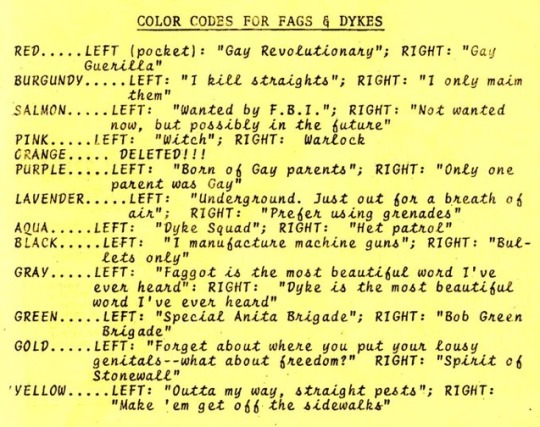
a gay liberationist play on the hanky code from mainely gay, march 1978
#queer history#lgbt history#lgbtq history#gay history#lesbian history#vintage queer#vintage lgbt#vintage lgbtq#vintage lesbian#vintage gay#gay liberation
10K notes
·
View notes
Text

Same-sex marriage in 2003 vs. 2013 vs. 2023
(20 years of change)
More info below:
----
2003:
Marriage : Netherlands, Belgium, British Columbia (CA), Ontario (CA)
Civil unions : France (including overseas territories), Germany, Denmark, Iceland, Sweden, Norway, Finland, Greenland, Rio Negro (AR), Ciudad de Buenos Aires (AR), California (US), New York (US), Hawaii (US), Vermont (US), Canary Islands (ES), Aragon (ES), Catalonia (ES), Andalusia (ES), Extremadura (ES), Castilla-La Mancha (ES), Castilla-Leon (ES), Madrid (ES), Valencia (ES), Asturias (ES), Basque Country (ES), Navarre (ES), Balearics (ES), Quebec (CA), Alberta (CA), Manitoba (CA), Nova Scotia (CA), Geneva (CH), Zurich (CH), Portugal.
----
2013:
Marriage : Netherlands, Belgium, Canada, Brazil, Uruguay, Argentina, South Africa, Spain, Portugal, France (including overseas territories), Denmark, Norway, Sweden, Iceland, New Zealand, Washington (US), California (US), New Mexico (US), Minnesota (US), Iowa (US), Maryland (US), DC (US), New Jersey (US), Delaware (US), New York (US), Connecticut (US), Rhode Island (US), Vermont (US), Massachusetts (US), New Hampshire (US), Maine (US), Hawaii (US), Mexico City (MX), Quintana Roo (MX).
Civil unions : Greenland, Colombia, Ecuador, Merida (VZ), United Kingdom, Ireland, Germany, Czech Republic, Austria, Finland, Hungary, Slovenia, Croatia, Switzerland, Luxembourg, Liechtenstein, Australia
Recognizes marriages performed abroad : All 32 Mexican states and Israel
----
2023:
Marriage : Netherlands (including overseas territories), Belgium, United States, Canada, Mexico, Costa Rica, Cuba, Puerto Rico, Colombia, US Virgin Islands, Ecuador, Brazil, Argentina, Uruguay, Chile, Malvinas/Falklands, France (including overseas territories), Spain, Portugal, Andorra, Germany, Slovenia, Switzerland, Austria, Malta, Guernsey, Jersey, United Kingdom, Isle of Man, Ireland, Gibraltar, Norway, Denmark, Sweden, Finland, Iceland, Greenland, Luxembourg, Faroe Islands, South Africa, Australia, New Zealand, Taiwan, Northern Mariana Islands, Guam, St. Helena, Pitcairn Islands, Gibraltar.
Civil unions : Bolivia, Italy, Cayman Islands, Bermuda, Aruba, Curaçao, Czech Republic, Hungary, Croatia, Montenegro, Greece, Cyprus, Estonia, Liechtenstein
Recognizes marriages performed abroad : Namibia, Israel, Nepal, American Samoa
----
Future :
Same-sex marriage is under consideration by the legislature or the courts in Aruba, Curaçao, the Czech Republic, Estonia, Greece, India, Japan, Liechtenstein, Namibia, the Navajo Nation, Nepal, Thailand, and Venezuela, and all countries bound by the Inter-American Court of Human Rights (IACHR), which includes Barbados, Bolivia, Dominican Republic, El Salvador, Guatemala, Haiti, Honduras, Nicaragua, Panama, Paraguay, Peru, and Suriname.
Civil unions are being considered in a number of countries, including Lithuania, Peru, the Philippines, South Korea, Ukraine, China, Hong Kong, Japan, Latvia, Panama, Romania, Serbia, Slovakia, Thailand, and Venezuela.
----
#map#maps#cartography#usa#latin america#mexico#data#americas#geography#europe#gay#lgbt#gay marriage#lgbtq#lgbtq history#lgbt history#history#lesbian#sapphic#marriage#pride
7K notes
·
View notes
Text
2K notes
·
View notes
Text
Queerness is not just about sex and romance. Since the concept of queer has been around, so have asexual and aromantic people. Lavender marriages, voluntary spinsters, vows of chastity used to cover a disinterest in sex. “Monosexuals”, “anesthesia sexual”, “anaphrodites”, category "X". Queer-platonic relationships, asexuality and aromanticism are an undeniable part of lgbtq+ history. Before there were any terms, any flags or acronyms, choosing to not conform to society’s romantic and sexual guidelines has been the very essence of queerness. The inherent queer experience of feeling alienated because you don’t love the “right” way or feel the right feelings for the right people, of trying to meet the expectations set for you while trying to build a life that doesn’t feel like a lie. These are all part of the aspec experience. We aren’t “invading” a space we don’t belong because it’s a trend, or an internet identity. We’re not “spicy straight”. We’re making ourselves known in a community we have always been a part of.
#take a shot every time i say queer#lgbtq+#lgbtq#queer#asexual#asexuality#aromantic#queer history#queer community#lgbtq community#lgbtq+ history#lgbtq history#aroace#asexual aromantic#aspec#acespec#arospec#ace spec#aro spec#asexual spectrum#aromantic spectrum#asexual history#ace history#acephobia#arophobia#amatonormativity#fuck amatonormativity#queer platonic partner#queer platonic relationship#queerplatonic
17K notes
·
View notes
Text

A protester in a demonstration in favour of the rights of homosexual people. Year 1979 in Barcelona, Catalonia. Photo by Pilar Aymerich (source).
Did you notice the sticker?


In the late 1970s, one of the most popular slogans in the Gay and Lesbian movement in Catalonia was "Maricon? Sí, gràcies" (Catalan language for "Faggot? Yes, thanks") in the shape of the famous "Nuclear? No, thanks" sign.
#uselesslgbtfacts#història#catalunya#pilar aymerich#coses de la terra#1970s#history#queer#queer history#gay#gay history#lgbt#lgbt history#europe#photojournalism#pride#lgbtq history#lgbtq#counterculture
3K notes
·
View notes
Text
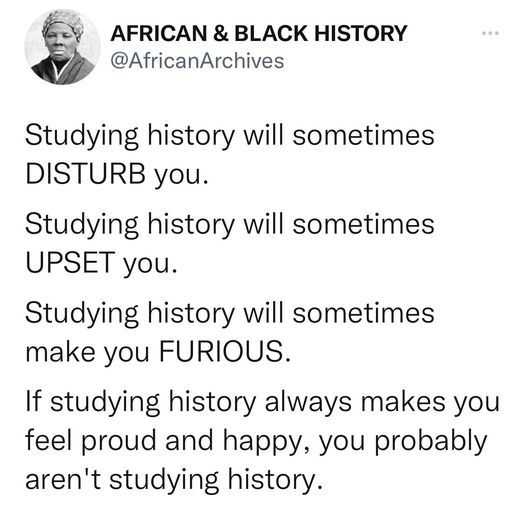
#lgbtq history#black history#world history#history#culture#anthropology#human history#archaeology#teacher#teaching#students#school#classroom#teachers#learning
6K notes
·
View notes
Text
The first person to issue a marriage license to a gay couple in the United States was Clela Rorex. She was the commissioner of Boulder County, Colorado, in 1975, and she kept issuing licences to gay couples until she was ordered to stop.
She understood intersectional equality on a fundamental level -- her logic being that she, a woman, a single mother, a feminist in the 70s, could not deny a gay couple the right to a marriage. She was a champion and a pioneer for queer people for the rest of her life, and she passed away this week.
Remember Clela during Pride, with the fighters and the disruptors, as another person who helped pave the way for us.
19K notes
·
View notes
Text

Sexy makeup worn by a goth transgender girl. I love her dress.. as always I love shear dresses with see through arms. Her hair is magical!
#trans community#transgender#transgirl#queer#lgbtlove#trans pride#trans#transgenderwoman#lgbtqia#transfem#lgbt#lgbtq artist#lgbt pride#lgbtq#lgbtq people#lgbtq history#lgbtq community#lgbtqia+#homosexuality#homoerotic#gay#gay community#gay culture#homosexual#gays#gay fashion#gay girls#gay selfie#gay woman#i am so gay
66 notes
·
View notes
Text
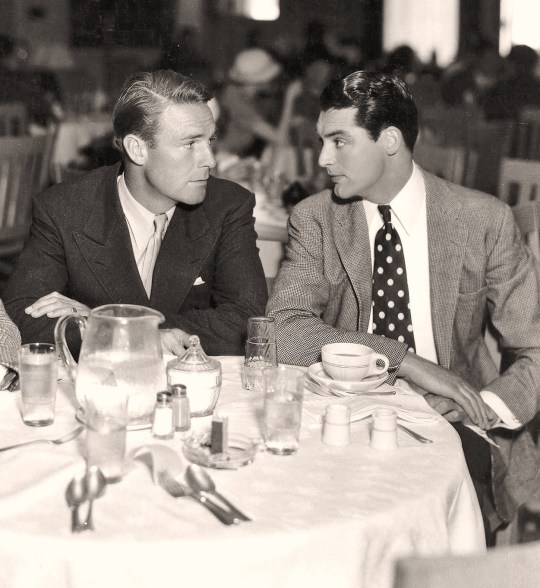
"Roommates" Randolph Scott and Cary Grant
#roommates#cary grant#randolph scott#vintage fashion#male fashion#men in suits#suit and tie#gay history#lgbtq history#lgbt history#male style#movie history#old hollywood#vintage hollywood#hollywood#beautiful men#men's fashion#men fashion#male hair#traditional hairstyles#classic hairstyle
2K notes
·
View notes
Text
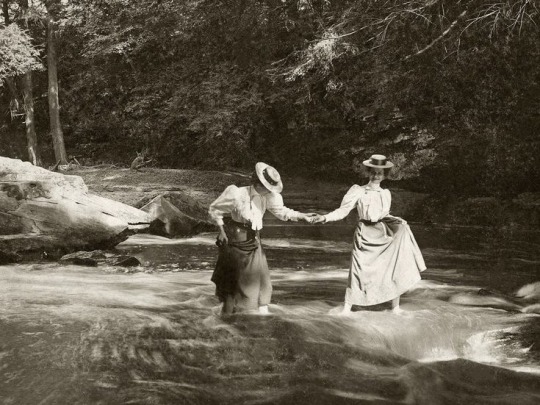

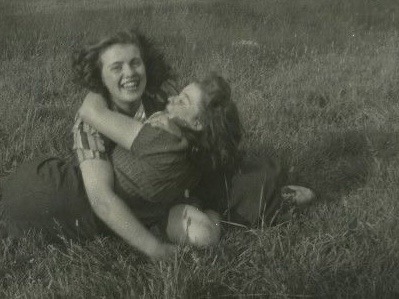

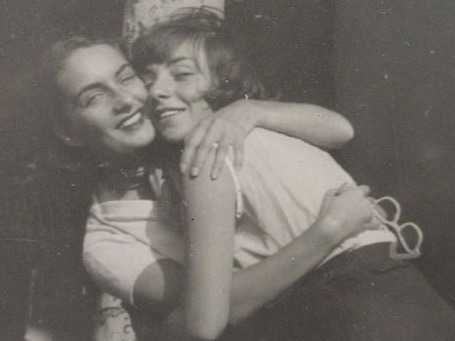
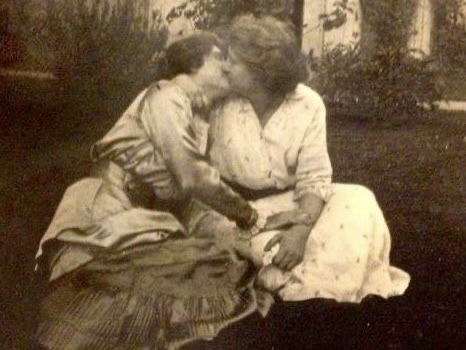

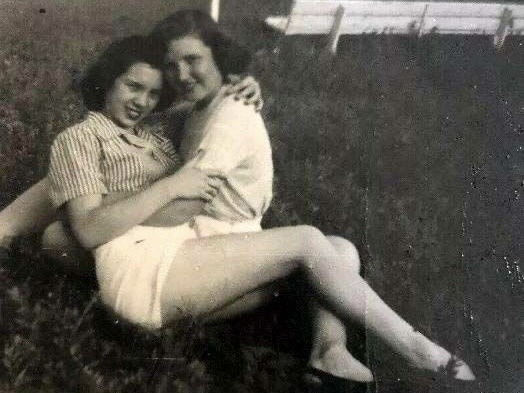
I love you now and forever <3
#lgbtq#lgbtq history#lesbian#lgbt#art history#cottagecore#dark academia#light acadmeia#romantic academia#histblr#heartcore#gardencore#wlw art#wlw
6K notes
·
View notes
Text
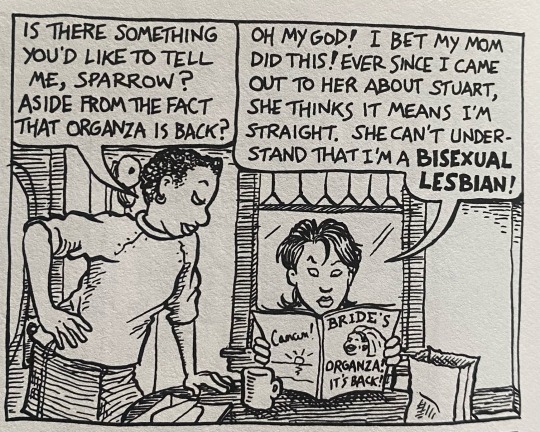


from dykes to watch out for #323 published in 1999
#queer history#lgbt history#lgbtq history#lesbian history#queer#lgbt#lgbtq#lesbian#vintage queer#vintage lgbt#vintage lgbtq#vintage lesbian
10K notes
·
View notes
Text
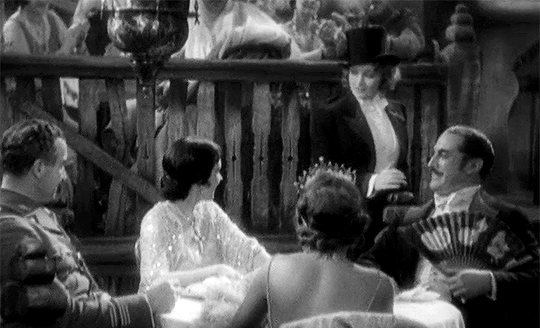
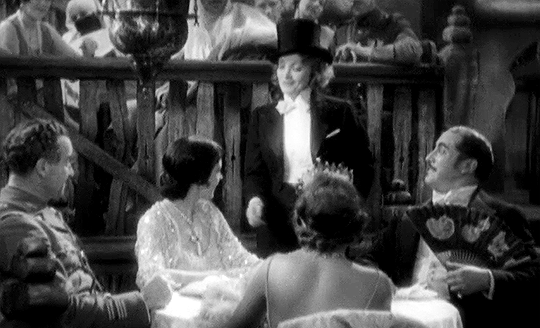

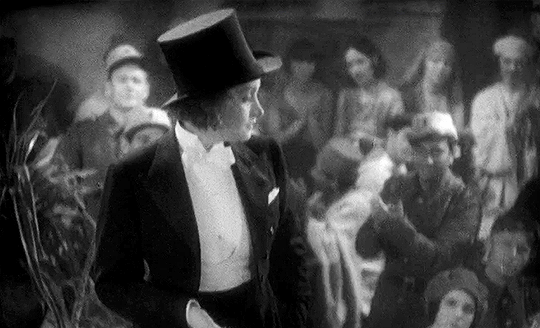
Morocco (1930)
The story goes that the iconic lesbian kiss in this film was, if not directly Marlene Dietrich's idea, vehemently defended by her. It is said that she suggested that having her take the flower from the young woman she kissed and then giving it to the soldier would make it so that the kiss could not be cut to appease censors without making the appearance of the flower make no sense. I haven't found any source that this is fact, but either way, having a lesbian kiss on screen in 1930 was unusual. As was seeing women in more masculine suits.
#morocco 1930#marlene dietrich#lgbtq cinema#lgbtq history#old hollywood#classicfilmedit#classicfilmsource#classicfilmblr#oldhollywoodedit#marlene dietrich my crush my wife
991 notes
·
View notes
Text
nothing will ever put into words how beautiful, rich and complex the history of butches and femmes is. the way these identities encapsulate the nuance of dyke gender, affection and the inherent longing to be seen - truly seen for who we are, in a world that often times, seems to have forgotten us.
thinking of those who came before us, how the ofos butches would curl a cigarette in their hands, and watch a femme from across the bar with long nails tap her glass, in anticipation of that one moment that tells them both it was all worth it. the gentle smearing of lipstick, the confidence from straightening out a tie. we have always performed for one another, and known each other far beyond the capability or understanding of anyone outside of our community.
i long to see the theatrics, the drawn out gazes filled with the possibilty of something more. the love letters adorned with perfume and spring violets, a gentle hand finding its way underneath the hem of a worn out vest. i long to love and be loved in the only way that we have ever known, with unbridled fervor spilling out at the edges, with the intimacy found beside candlelight and intertwined between satin sheets. the promise that we will always find each other.
#men dni and fuck off#butch4femme#femme4butch#stone butch#high femme#dyke#lesbian#ofos butch#ofos femme#butch dyke#butch lesbian#femme lesbian#femme dyke#vintage lesbians#lgbtq+#lgbtq#lgbtq history#lesbian history#butchfemme#butch femme#femmebutch#femme butch#butch#femme#stone femme#pillow princess#stone lesbian#stone4stone
911 notes
·
View notes